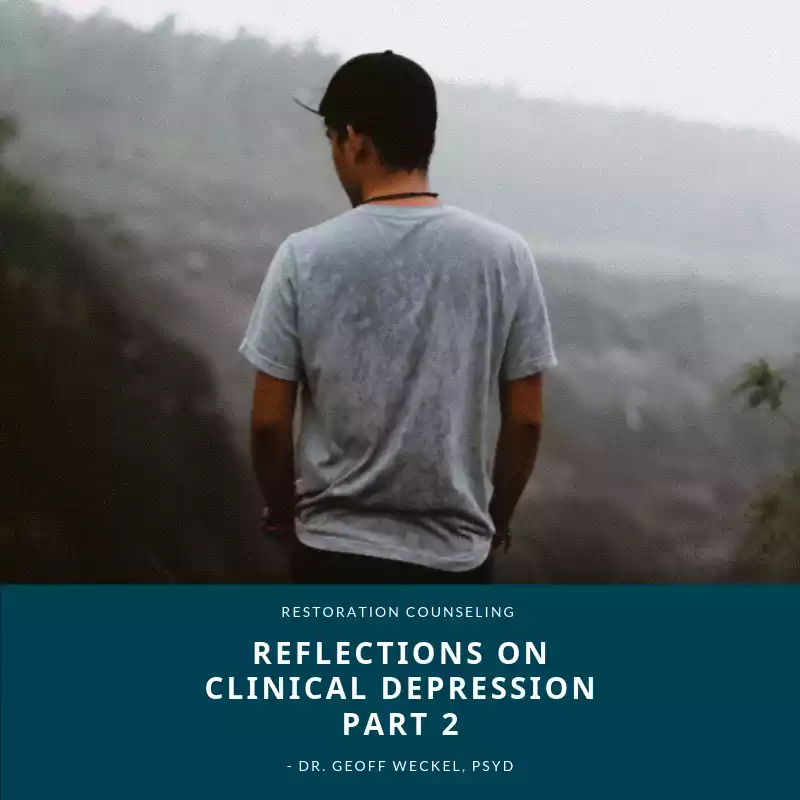
Reflections on Clinical Depression Impact on the Home, Part 2
My previous blog on clinician depression looked at the financial impact depression is having on America. What is often overlooked, or not discussed, is the impact clinical depression has on the home. In this blog I am going to consider how depression affects the home and what loved ones can do about it.
Living with someone who is clinically depressed is incredibly difficult because he or she does not perceive the world like other people. Just like a carnival mirror disfigures an individual’s body, a depressed individual misperceives his world. A clinically depressed individual wears distorted lenses that alter his perceptions: positive experiences are dismissed, neutral events are catastrophized, and negative situations are personalized.
Overtime a depressed person’s distorted perceptions can slowly have an impact on his loved one’s reality as well. For example, the child with a depressed mother can unconsciously begin to feel like he cannot do anything right because his mother has a strong propensity to overlook positive experiences. A wife might begin to feel inadequate because she is unable to keep the peace at home because her depressed husband often erupts over small mishaps (e.g., dinner is not done on time). If a loved one is not careful, he can unintentionally put on the “depressed lenses”. There are a variety of ways someone might accidentally put on the depressed lenses: 1) compensate for the depressed individual by over-functioning for the depressed individual, 2) submit oneself to the negative subjective outlook of the depressed individual, or 3) waver between compensating and conceding with the depressed individual.
At Restoration we coach dysregulated patients to “ground” their emotions by practicing mindfulness. What are the skills of mindfulness? In Dialectical Behavior Therapy mindfulness is broken down into three skills: 1) Observe, 2) Describe, and 3) Participate. I have found these skills to be helpful for those who have a loved one that struggles with depression. These skills can help you from inadvertently putting on the depressed lenses by: 1) factually observing yourself in reality, 2) empathically describing the depressed individual’s tension, and 3) appropriately allocating participation in the healing process. For example, when your depressed love one stays in bed: 1) observe (or ground yourself with the fact) that his body is physically impacted by depression while being aware that he does not need to stay in bed all day, 2) empathically describe the depressed individual’s desire to stay in bed and the need to get out of bed, and 3) graciously participate by inviting the depressed individual to consider his options to be effective with his predicament. Instead of inadvertently casting additional judgment (e.g., “Quit being lazy and get out of bed!”), a loved one can remain mindful of what is concretely observe, objectively describe, and appropriately participate in the loved one’s distress. Mindful communication helps the depressed individual improve their ability to address one problem at a time, which reduces the propensity to fall into the global cognitive triad of depression (discussed in previous blog).
One last word of encouragement for those who love someone who is depressed, just as a depressed individual does not always accurately view his world, a depressed individual does not always accurately hear what people say to him. Remember, they often dismiss positive statements, misperceive neutral statements and personify negative statements. Talking to a depressed individual is an art that is very difficult skill to master even for the most experienced therapist. Restoration has several therapists who would be happy to coach you on how to improve your communication with your depressed loved one. Please call 817-291-9872 to set up an appointment to talk with one of our therapists at Restoration.


